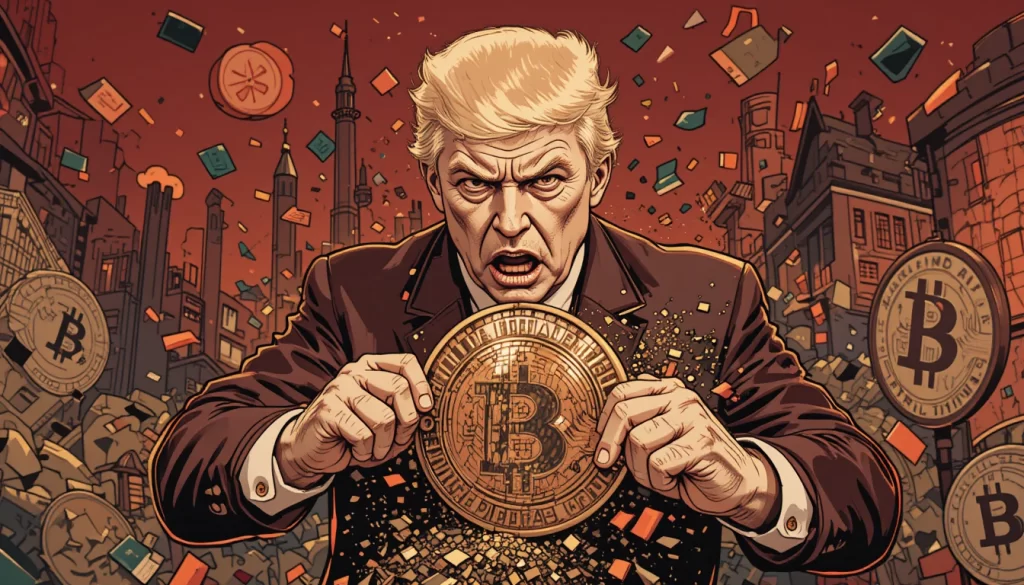On April 2, 2025, President Donald Trump announced a series of sweeping tariffs targeting imports from multiple trading partners, intensifying global trade tensions and impacting various financial markets, including cryptocurrencies.
Immediate Impact on Cryptocurrencies
Following the tariff announcement, major cryptocurrencies experienced notable declines:
- Bitcoin (BTC): The leading cryptocurrency fell approximately 2.3%, trading around $83,000.
- Ethereum (ETH): The second-largest digital asset declined by 3.3%.
- XRP: This cryptocurrency saw a 3.6% drop, reaching $2.04.
These movements reflect heightened investor caution, as cryptocurrencies are often viewed as high-risk assets susceptible to macroeconomic developments.
Decline in Crypto-Related Stocks
The tariff announcement also adversely affected stocks of companies associated with the cryptocurrency sector:
- Coinbase Global (COIN): The prominent crypto exchange’s shares declined by about 4%.
- Strategy Inc. (MSTR): A major Bitcoin holder, formerly known as MicroStrategy, saw its stock drop by approximately 3%.
- MARA Holdings (MARA): The mining company’s shares fell around 4%.
- Riot Platforms (RIOT): Experienced a 5% decrease in stock value.
- Bitfarms (BITF): Shares declined by about 6%.
These declines underscore the sensitivity of crypto-related equities to broader economic policies and investor sentiment.
Analyst Insights
Despite the downturn, some analysts suggest that cryptocurrencies’ decentralized nature may offer a hedge against macroeconomic uncertainties. David Hernandez, a crypto investment specialist at 21Shares, noted that the price action highlights crypto’s “hyper-democratic and borderless nature,” allowing investors worldwide to hedge against potential macroeconomic impacts.
Additionally, there is optimism that crypto exchange-traded funds (ETFs) might attract inflows from retail investors seeking opportunities, though the volume of such investments may decrease if market volatility persists.
Conclusion
President Trump’s tariff announcements have introduced additional volatility into the cryptocurrency markets and related equities, reflecting broader investor concerns about escalating trade tensions and their potential economic ramifications. Market participants should remain vigilant, as the evolving trade landscape continues to influence both traditional and digital asset markets.
